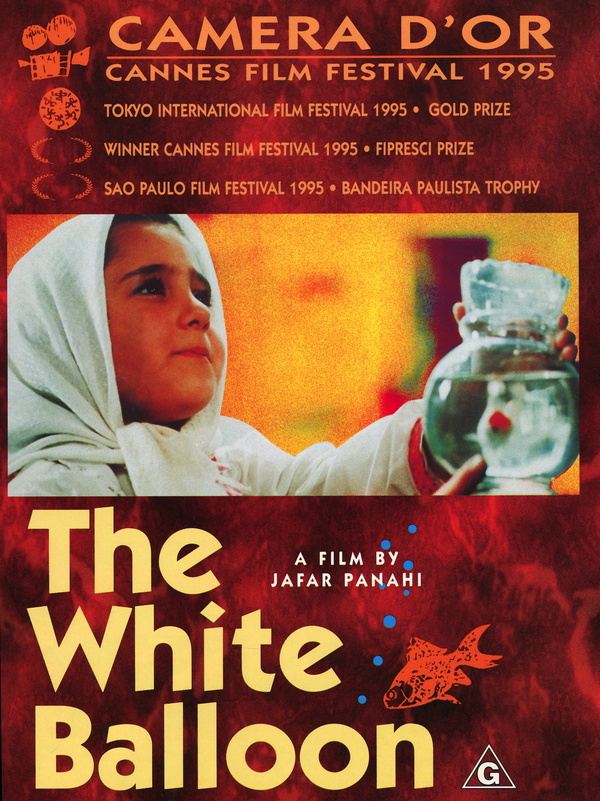Majid Majidi: آواز گنجشکها (The Song of Sparrows) | 2008

In a ‘cinemascape’ of lyricism and allegory, Majid Majidi inhabits a space that is uniquely his own, where, with a flourish of quiet sentimentality and poetic poise, he unfurls for us a spiritual fable of a righteous man placed in the pastoral rural and the materialistic urban. Majidi is a relatively later figure in Iranian cinema, but to my mind, certainly not a lesser figure. In a telling moment in آواز گنجشکها (The Song of Sparrows,) the protagonist Karim (played convincingly by the inimitable Reza Naji) breaks into a nostalgia soaked song that brings smiles to the saddened young boys surrounding him – “Our flowers have withered, our eyes are crying, I remember the good old days….The world is a lie, the world is a dream ….I’ve passed my youth in pain in this world.” The pastoral rural marked by close family ties, community living, and proximity to the ‘living world’ lies in stark contrast to the transactional, corrupting and materialistic core of the urban, and in straddling these seemingly incompatible universes, Karim has to be committed to his essential righteousness, to his faith. Read More…


 veryveryinterestingwebsite.have been visiting! thankyou!
veryveryinterestingwebsite.have been visiting! thankyou! Photo gallery
Photo gallery With all the magical places you are checking off your bucket list! I want to know how to be you :)
With all the magical places you are checking off your bucket list! I want to know how to be you :) Happy teachers day! Out of all, your teachings n your way of being have really made a big positive impact on me.
Happy teachers day! Out of all, your teachings n your way of being have really made a big positive impact on me. Photo gallery
Photo gallery Milindo Taid – ace teacher, rockstar guide to my projects at film school, guitarist and photographer too. Really good human being as well
Milindo Taid – ace teacher, rockstar guide to my projects at film school, guitarist and photographer too. Really good human being as well You’re a role model sir, such awesomeness !!! :D
You’re a role model sir, such awesomeness !!! :D You are inimitable!
You are inimitable! Photo Gallery
Photo Gallery Photo gallery
Photo gallery Photo gallery
Photo gallery Photo gallery
Photo gallery Hi Milindo, hope you are inspiring many more around you…wherever you are!
Hi Milindo, hope you are inspiring many more around you…wherever you are! Photo gallery
Photo gallery So glad you enjoyed my photos, really honored to be featured on your blog. thank you sir!
So glad you enjoyed my photos, really honored to be featured on your blog. thank you sir! Its really good to see you Milindo, with such awesome stuff from you as usual.. loved your blog as well!
Its really good to see you Milindo, with such awesome stuff from you as usual.. loved your blog as well! i really like your blog – good interesting stuff as always !
i really like your blog – good interesting stuff as always ! Photo Gallery
Photo Gallery We need more teachers like you :)
We need more teachers like you :) Your courses were always the best. By the way, just went through a bit of your website. It’s great! Some good stuff in there that I wouldn’t normally chance upon
Your courses were always the best. By the way, just went through a bit of your website. It’s great! Some good stuff in there that I wouldn’t normally chance upon You are awesome :)
You are awesome :) Photo gallery
Photo gallery Photo gallery
Photo gallery OMG its like a painting!! you have taken photography to another level!!!
OMG its like a painting!! you have taken photography to another level!!! love ur pics…they are like those moments which u capture in your mind and wished u had a camera right at that moment to capture it…but u actually do capture them :) beautiful…!!!
love ur pics…they are like those moments which u capture in your mind and wished u had a camera right at that moment to capture it…but u actually do capture them :) beautiful…!!! Photo gallery
Photo gallery Oldest operating bookstore
Oldest operating bookstore Never thought I’d say this, but it was the most interesting classes I’ve sat in.. and of course, the day you played Sultans of Swing for us. Hope you continue to influence the next generations with your dynamic yet simple teachings.
Never thought I’d say this, but it was the most interesting classes I’ve sat in.. and of course, the day you played Sultans of Swing for us. Hope you continue to influence the next generations with your dynamic yet simple teachings. Your website is full of delightful posts. I’m going to have to watch where my time goes when I’m visiting! :)
Your website is full of delightful posts. I’m going to have to watch where my time goes when I’m visiting! :) Photo gallery
Photo gallery Photo gallery
Photo gallery This is by far amongst the best curated creative content sites out there and the eye and vision of one man, when good, works better than any funded team. Inspired enormously once again :)
This is by far amongst the best curated creative content sites out there and the eye and vision of one man, when good, works better than any funded team. Inspired enormously once again :) hope you’re changing the world as always :)
hope you’re changing the world as always :) Guitar in your hand reminds me of the MCRC days! You are terrific… :)
Guitar in your hand reminds me of the MCRC days! You are terrific… :) Grt milindo. eachtime want to check out something good on net…know where to go now!
Grt milindo. eachtime want to check out something good on net…know where to go now! Just detected your blog: impressive. wishing you continued inspiration and health.
Just detected your blog: impressive. wishing you continued inspiration and health. Milind never told u but u were my first true inspiration….I almost learnt the guitar watching u play…..thanx for being there
Milind never told u but u were my first true inspiration….I almost learnt the guitar watching u play…..thanx for being there Photo gallery
Photo gallery Photo gallery
Photo gallery Photo gallery
Photo gallery #NowFollowing @Milindo_Taid One of the most influential n interesting mentor from my design school. Always loaded. :)
#NowFollowing @Milindo_Taid One of the most influential n interesting mentor from my design school. Always loaded. :) Photo Gallery
Photo Gallery great blog :)
great blog :) You are the only faculty member I could connect to!
You are the only faculty member I could connect to! I was just looking at your website… amazing it is… full of knowledge as always..
I was just looking at your website… amazing it is… full of knowledge as always.. Love your site Milindo. I was excited to see you displaying my husband’s watermelon carvings
Love your site Milindo. I was excited to see you displaying my husband’s watermelon carvings Still a fan of your unique and sweet finger strum on acoustic guitar. It made an ordinary guitar sound great. Would just love to see and hear one of those too.
Still a fan of your unique and sweet finger strum on acoustic guitar. It made an ordinary guitar sound great. Would just love to see and hear one of those too. Photo gallery
Photo gallery You’ll love this site by the awesome Milindo Taid
You’ll love this site by the awesome Milindo Taid I discover TL of a writer and respected intellectual, with a tolerant, global conscience: @GhoshAmitav – tx @Milindo_Taid
I discover TL of a writer and respected intellectual, with a tolerant, global conscience: @GhoshAmitav – tx @Milindo_Taid Photo gallery
Photo gallery Photo gallery
Photo gallery Absolutely amazing blog – a chest full of treasure.
Absolutely amazing blog – a chest full of treasure. Photo gallery
Photo gallery